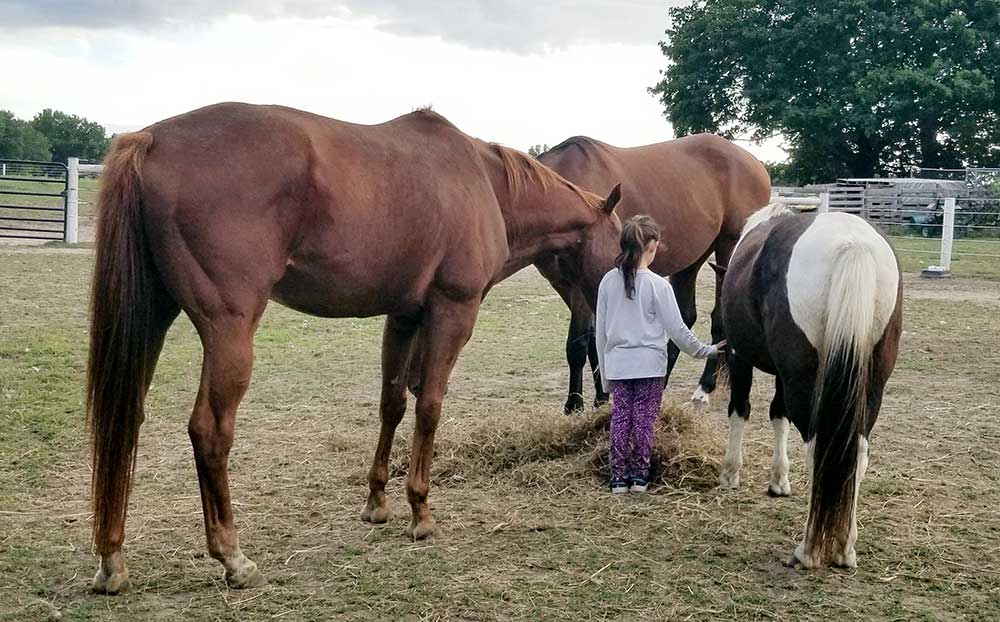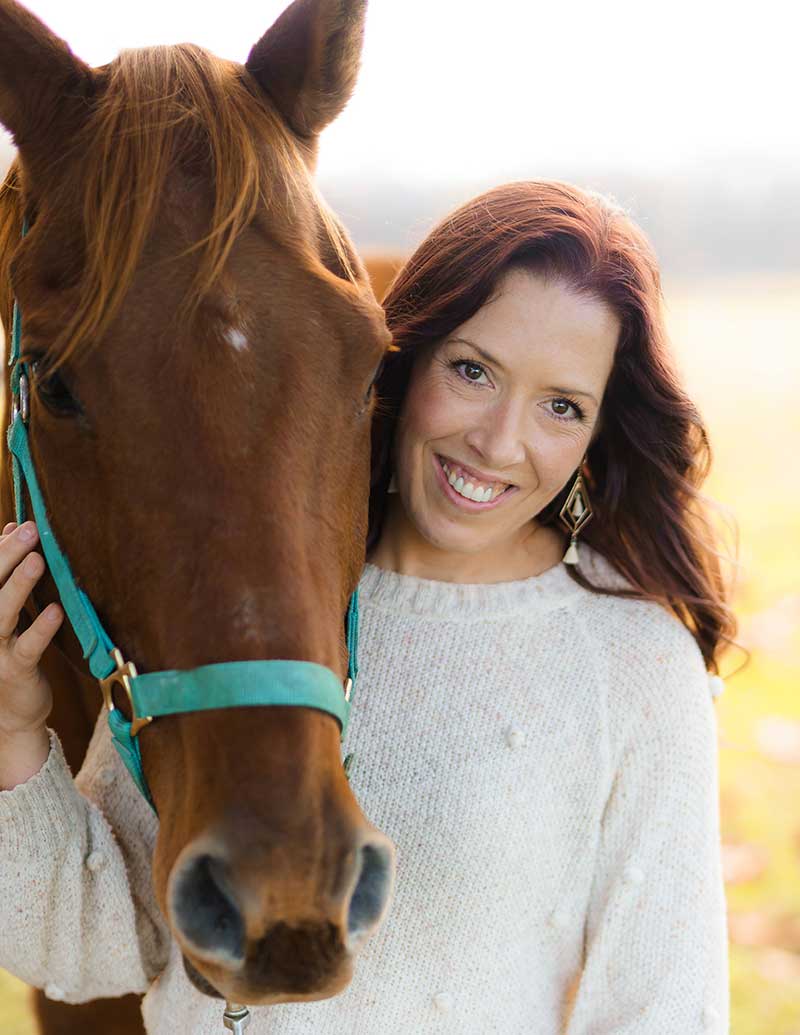Equine Assisted Psychotherapy

How it Works
THE EAGALA MODEL is a team approach that includes a licensed, credentialed Mental Health Professional, a qualified Equine Specialist, and horses working together with the client in an arena at all times.
When inside the arena, all the work is done on the ground with the horses front and center, deliberately unhindered and never ridden, and allowed to interact with the client as they wish. This creates the space for the client, with the support of the professional facilitators, to reflect, project, and make deep connections. Allowing the client to overcome challenges by being the expert in their own life.
Why Horses
INTELLIGENT PREY ANIMALS
To evade predators, horses have evolved to be extremely sensitive to their environment. They instinctively analyze and react to our body language and other nonverbal cues providing us with valuable feedback and insights for other areas of our lives.
LARGE AND POWERFUL
It’s hard to ignore a horse with their size and presence. We can’t just control a powerful horse. Approaching horses helps us reflect how we approach our relationships and how we can face other big or overwhelming things in our lives.
HERD ANIMALS WITH DISTINCT PERSONALITIES
Horses are social animals with defined roles within a herd. They have distinct personalities, attitudes, and moods. They could be stubborn or they could be playful. In other words, horses are a lot like us.

The Team

Heather Baker, LPCMH – Therapist
Heather has been a Licensed Professional Counselor with RLCCC since 2016 offering office-based therapy. She was presented with the opportunity to attend The Fundamentals of Eagala training in February, 2022 becoming EAGALA Certified and is excited to be able to offer this model of therapy to clients at RLCCC. Heather has been working with horses for over 25 years and it has always been her desire to share the therapeutic power of horses with her clients. When Heather is not working, she can be found spending time with her family and taking care of and playing with their menagerie of animals.
Who Can Benefit
FOR THERAPY OR PERSONAL DEVELOPMENT FOR ANY PROBLEM. Addictions, trauma, social and behavioral disorders, depression and more.
 Renewed Life Christian Counseling Center
Renewed Life Christian Counseling Center